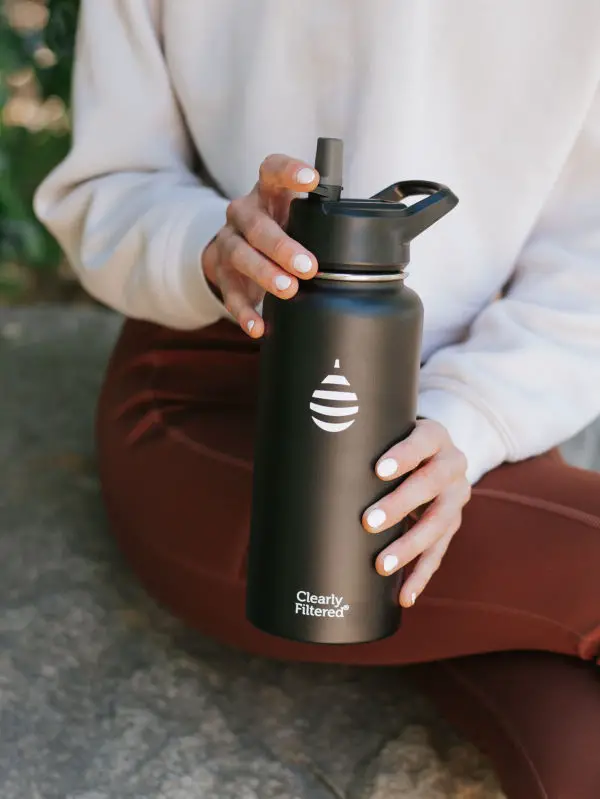The pH of coconut water changes with the age of the coconut and during processing. People still debate whether bottled and raw coconut water is acidic, alkaline, or neutral. With coconut water taking the beverage world by storm with its distinct taste and potential health benefits, let’s finally clear up the confusion.
Coconut water typically comes from 9-month-old coconuts that have a pH of around 5.1 (which is acidic). During processing and pasteurization of the raw coconut water, the pH can increase slightly. Bottled coconut water, such as Vita Coco is acidic too with a pH of 5.3.
In this post, we cover everything about the pH of coconuts, including as they mature, during harvesting and processing for coconut water, and the pH of bottled coconut water. Note: pH just means “how acidic something is” – the lower the number the more acidic it is.
The pH of Coconut Water: Age Matters
The age of the coconut plays a crucial role in the quality of its water. Harvested at around 9 months when the jelly inside is still soft and translucent, coconuts are at their prime for obtaining the sweet, hydrating liquid that is coconut water.
As they mature beyond this point, the jelly hardens, and the coconut water volume decreases.
Bottled coconut water – the stuff we buy at the grocery store – typically comes from 9-month-old harvested coconuts which have a pH around 5.1 (slightly acidic).
The acidity of coconut water you drink varies depending on the coconut’s age when it was harvested. As coconuts age, they become slightly less acidic.
Here’s a rough breakdown:
7-8 Months Old (Young Tender Coconuts – YTC):
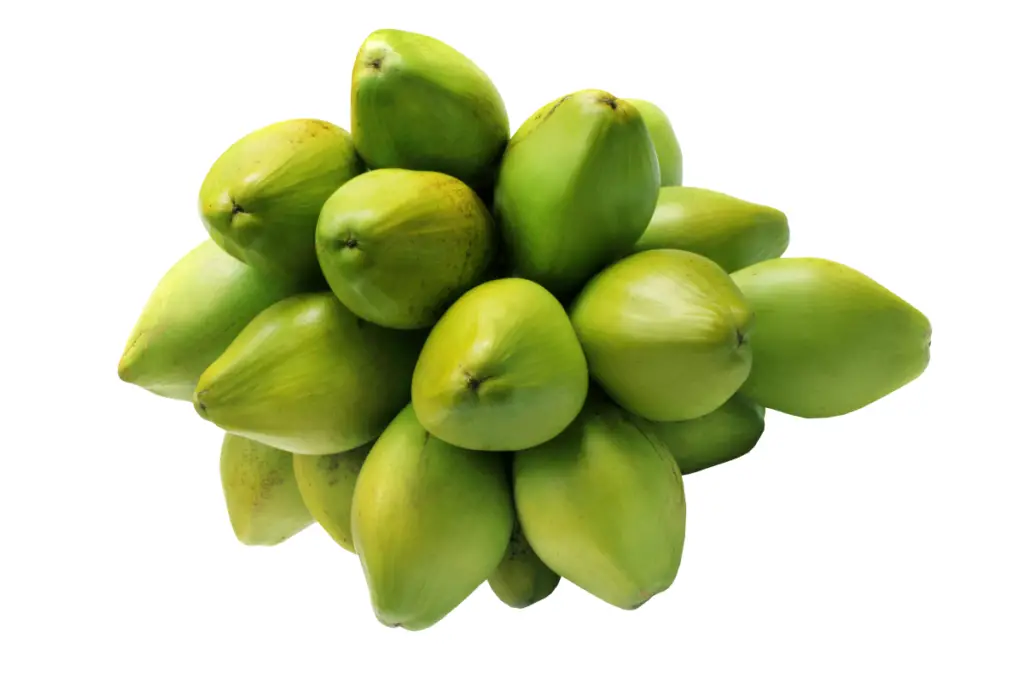
At this stage, coconut water is slightly more acidic, with a pH of about 4.7.
9 Months Old:
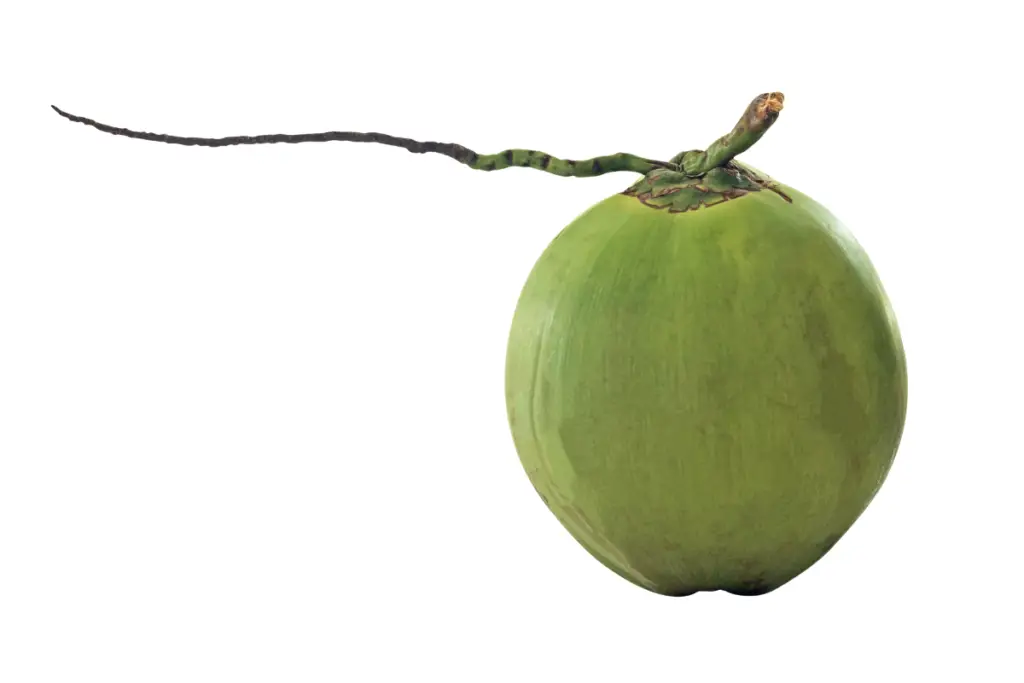
Most commercially available coconut water comes from coconuts harvested at around 9 months old. At this point, the pH of coconut water is approximately 5.1, making it slightly acidic.
Interestingly, if coconuts are not processed straight away, the pH increases only minimally. They will usually remain below a pH of 6.0 for up to two weeks, even without refrigeration, before processing.
13 Months Old:
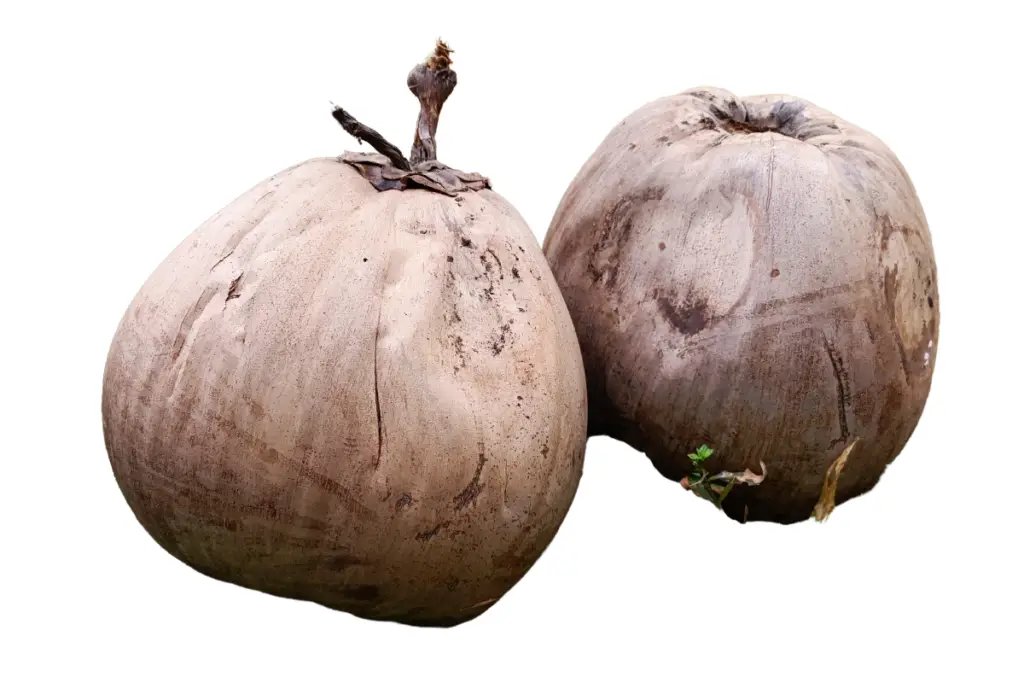
For coconuts that continue to mature, the pH increases to around 6.3, which is still acidic but less than the younger nuts. These are the old coconuts you might find washed up on a tropical beach – good for eating the coconut meat, but the coconut water isn’t usually as nice as the the younger coconuts!
Processing Impact on pH
The pH of coconut water may undergo minor changes during processing. One common method used to prolong its shelf life is pasteurization, which involves the application of heat. This heat can influence the acidity level, potentially resulting in a minor increase in pH.
Fresh vs. Processed: When you compare freshly harvested coconut water to commercially packaged varieties, you might encounter slight pH variations due to the processing involved. Nevertheless, these changes are typically minimal and have no significant impact on the overall quality and safety of the product.
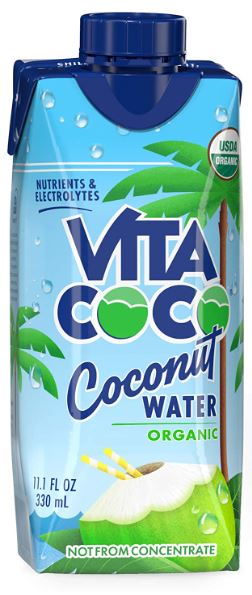
For instance, let’s take a closer look at Vita Coco, a well-known and popular brand of coconut water.
The manufacturer employs thermal sterilization, a processing technique, and independent analyses indicates it has a pH of 5.3 ± 0.1.
To put it in perspective, assuming they started with coconut water from 9-month-old coconuts (with a pH of approximately 5.1), the pH only experienced a slight increase of 0.2 during processing before the Vita Coco bottle found its place on the grocery shelf.
Understanding pH Scales
To put all this in perspective, it’s crucial to understand pH scales.

A neutral pH is 7.
Anything below 7 is considered acidic, and anything above 7 is alkaline or basic.
With a pH of around 5.1 for raw coconut water (from a 9-month old coconut), it falls on the slightly acidic side of the scale.
In comparison, regular drinking water usually falls within a pH range of 6.5-8.5, which is slightly acidic to alkaline. Water that is outside this range can taste a bit odd.
So, if you were to drink regular water with a pH similar to coconut water, you might find it tasted slightly sour – but don’t forget, coconut water has natural sugars that balance its flavor.
The Best Water Filter Bottle We’ve Ever Used
Clearly Filtered | Stainless Steel Filter Bottles
We really love these filter bottles for keeping your drinks cool and contaminant free! They remove 99.9% of over 220 contaminants and use BPA-free plastics and double-walled stainless steel to produce some awesome looking designs with numerous bottle sizes for every situation. You can find them at Clearlyfiltered.com

